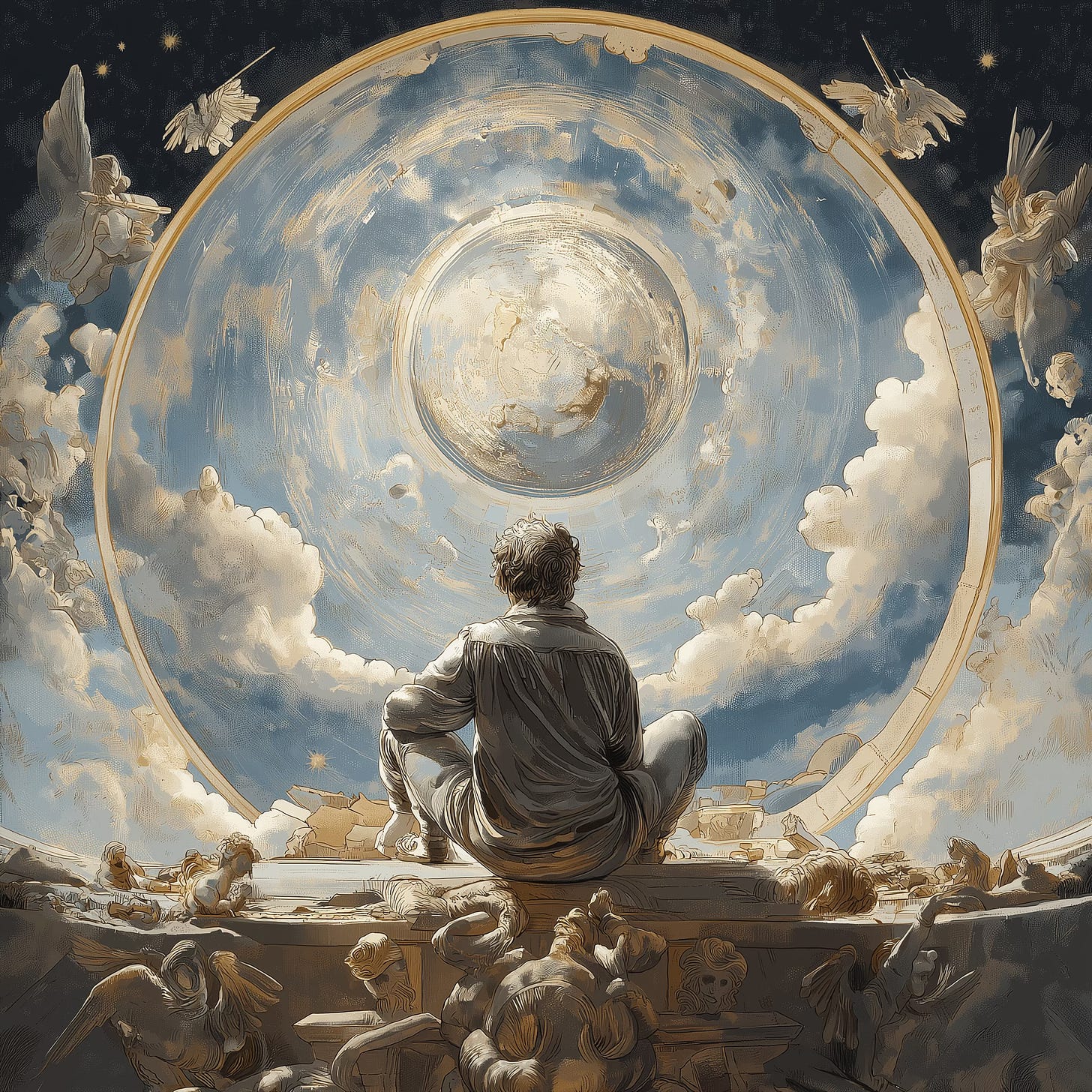The Age of Intelligence
AI and the Second Renaissance
Arthur Brooks speaks about the inevitable shift in human intelligence that happens as we age. In our youth, we thrive on fluid intelligence—the quick, innovative, problem-solving ability that allows us to create, adapt, and learn at a rapid pace. But around the age of thirty, the biological tide starts to turn. Fluid intelligence gradually gives way to crystallized intelligence, the wisdom accumulated through experience, the deep wells of understanding, the ability to teach rather than simply do. There is no brain training, no shortcut, no workaround to halt this transformation. It is simply how the mind evolves. Brooks framed this shift in the context of happiness—learning to embrace the wisdom of age rather than fighting for the sharpness of youth. But this raises an intriguing question: What happens when we introduce artificial intelligence into this equation? If fluid intelligence fades naturally, could AI act as a bridge, a means to reignite our ability to create, solve, and innovate in ways once thought impossible? Could AI, in effect, usher in a Second Renaissance for those willing to embrace it?
A New Kind of Collaboration
Traditionally, aging has been viewed as a slow retreat from creative brilliance, a transition from doing to reflecting. The novelist writes fewer books, the scientist moves from research to mentorship, the artist paints less frequently but with greater depth. But what if AI can change this trajectory? What if, instead of shifting from creator to observer, we enter a new stage of partnership—one where human wisdom and AI’s agility form a symbiotic relationship?
For someone who has never composed music, AI can provide the scaffolding, generating melodies and chord progressions while the human mind infuses meaning, emotion, and structure. The same is true for art, literature, storytelling—any field where creativity and skill intertwine. AI does not replace fluid intelligence so much as it extends its reach, filling in the gaps where the mechanics of creativity might falter. This shift is not theoretical; it is already happening. Artists in their sixties and seventies are experimenting with AI-generated compositions, business executives are using AI to write books, and late-life creators are discovering that the supposed barriers to entry—technical expertise, years of training—are dissolving in real time.
But perhaps the most profound aspect of this collaboration is not simply that AI can assist with execution, but that it can rekindle the creative instincts that may have lain dormant. It is one thing to imagine writing a novel; it is another to see an AI-generated first draft that inspires revisions, refinements, and new directions. In this way, AI does not merely provide tools—it reignites the impulse to create.
The Renaissance Mindset
Throughout history, there have been rare figures who seemed to defy the cognitive arc of aging. Goethe completing Faust in his eighties, Frank Lloyd Wright designing the Guggenheim at nearly ninety, Leonard Cohen recording some of his most profound work in the last years of his life. But these examples have always been the exception, not the rule. The difference now is that AI could make this kind of late-life reinvention accessible to anyone willing to engage.
What we are seeing is the emergence of a new kind of intelligence—one that is neither strictly human nor purely artificial, but a fusion of the two. The traditional model of aging, where creativity gives way to reflection, is giving way to something more fluid, more iterative. The individual who once saw themselves as past their prime may suddenly find that AI enables them to return to the creative pursuits they once dreamed of but never had the skills to pursue. A former engineer becomes a digital artist. A retired professor turns poet. A lifelong admirer of music becomes a songwriter. AI allows the crystallized intelligence of experience to once again dance with the energy of new creation.
This is not about resisting the natural shifts of aging, nor is it about clinging to youth. It is about reimagining what it means to grow older in a world where technology can extend not just our years, but our ability to make them meaningful. AI does not eliminate the passage of time, but it does offer something remarkable—the possibility that the most creative years of our lives may still be ahead of us. Yes, AI could enable a Second Renaissance for those willing to embrace it.






